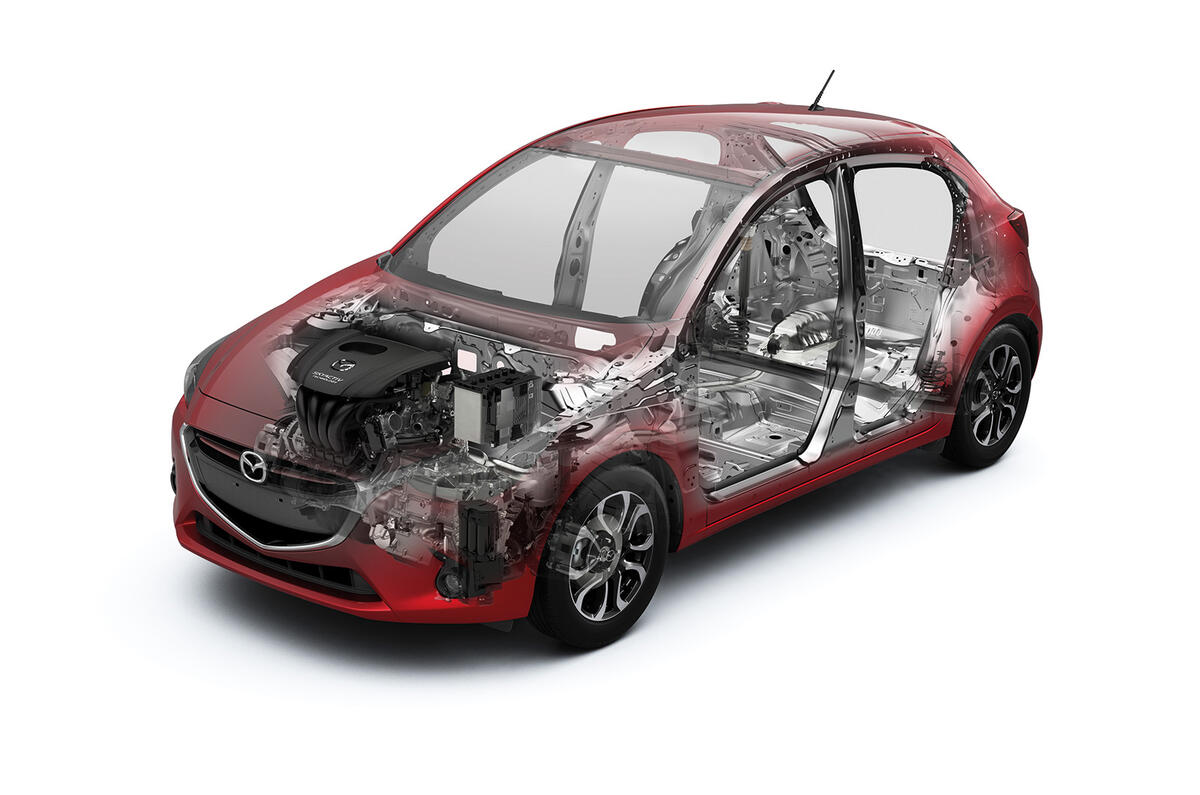Mazda is aiming to lift the efficiency of its petrol engines by 50% by 2020, according to European research and development chief Kenichiro Saruwatari.
The current efficiency of its petrol engines is a competitive 40%, but it hopes to reach 60% in the next five years.
It hopes to do this by developing its homogeneous charge compression ignition technology (HCCI), in which the mixture is ignited by compression rather than a spark, like a diesel.
That will involve raising the compression ratio from about 14.0:1 today to 18.0:1 and achieving very precise control of the combustion process to avoid knock. The aim is to combine the cleaner emissions of a petrol engine with the efficiency of a diesel.
As part of its Skyactiv efficiency programme, Mazda is also investigating scope for reducing heat lost through the exhaust system, which typically loses about 30% of the fuel’s energy. “We’re looking at several solutions but can’t say which yet,” said Saruwatari.
The company has been pursuing its current efficiency path since the development of the 2002 Mazda 6, which was “generation one of the roadmap”, Saruwatari said.He said the next Mazda CX-5 crossover will be the first of the seventh generation. “The main direction of Skyactiv has not changed,” he added, “although we sometimes find new technologies and materials that produce a step change.”
Mazda recently announced a partnership with Toyota that could result in a plug-in hybrid model, but it has said its petrol cars could ultimately match EVs for well-to-wheel efficiency. This could mean average well-to-wheel CO2 emissions of about 80g/km for an unspecified ‘average’ model equipped with a Skyactiv Generation 2 engine.
The third generation of Skyactiv engines could take this even further. Mazda has previously spoken of average well-to-wheel emissions as low as 50g/km, although it has not set a date for this.
Get the latest car news, reviews and galleries from Autocar direct to your inbox every week. Enter your email address below:





Join the debate
Add your comment
I like Mazda for ploughing
Sorry to disappoint all the VAG haters on here but the A6 ultra can really get some big economy numbers without trying too hard, witness the recent record it broke. My Focus ecoboost does OK the motorway but in mixed driving it's hopeless, just boost and no eco.
The bold new Mazda
Jokers
Do you really think a company makes these claims without having done years, yes years of development?
Christ on a bike.
Armchair Marketing expert.
michael knight wrote: Wow..
I think we would all be more believing if other manufacturers made similar claims. For instance, VW, who show innovation through their products like the XL1 and E Golf are aiming by 2020 to have a fleet average of 95g/km across its range as per EU directives. It is finding even this difficult. For a much smaller firm with a much smaller R&D budget like Mazda who has shown no technologically experimental vehicles, nor even has a hybrid in its line up, for them to blow VW out of the water with 60% efficient petrol engines. Please. Its like the new college grad who huffs and puffs about being an entreprenerial millionaire by the time they are 30, the evidence being the 2:2 they got on their business degree.